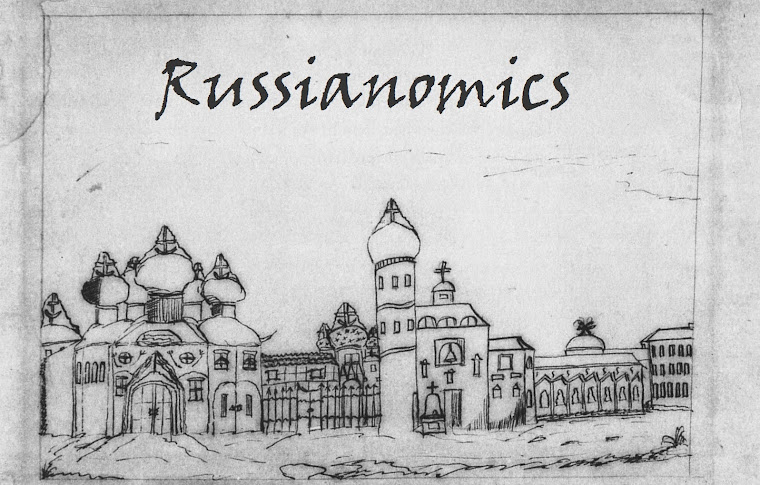When you look at the numbers on overall wealth inequality, Russia is not an extraordinary case. With a GINI index (0%=everybody owns the same, 100%=one owns everything) of 69.9% it is more unequal than Germany (66.7%) and China (55%), but in the U.S., the GINI is even higher than in Russia (U.S. 80.1%). However, wealth distribution is peculiar in Russia when you look at the wealthiest in the upper class. The number of billionaires in Russia is extraordinarily high, while the number of millionaires is very low.
Beginning with the more obvious part, Russia's excentric billionaires are often covered in international news, so it will not surprise you that there are much more of them than Russia's GDP would indicate:
However, the number of millionaires is surprisingly low. Estimating the number of millionaires in a country is much more difficult than counting the billionaires. Depending on the source, there are large differences in the available data. In the following graph, the number of millionaire adults (not households) as estimated in the Global Wealth Databook by Credit Suisse is used:
To indicate the wealth distribution in the upper class in a single diagram, you can compare the number of billionaires with the number of millionaires per country:
In numbers, for every billionaire there are 1,045 millionaires in Russia according to Credit Suisse, while there are 88,583 millionaires for every billionaire in Japan. In Germany, the relationship is 1:14,806 and in the UK 1:44,604.
What do these relations us? There are many factors influencing the distribution of wealth in the top class, among which there certainly are the structure of the economy, state and the history of economic development and each country's institutions, including cultural characteristics which influence social mobility etc. Disentangling these effects would result in a nice research paper.
To explain the low number of millionaires in Russia, it helps to understand who the millionaires in other countries, e.g. the United States are. There is an interesting charaterization of American millionaires: They are mostly self-employed (two thirds, vs. a 20% average in the US) and run "boring" small businesses: "We are welding contractors, auctioneers, rice farmers, owners of mobile-home parks, pest controllers, coin and stamp dealers, and paving contractors." Small businesses are responsible for many of the American seven-figure belongings. Most did not become a millionaire by inheriting.
We can reformulate the question: "Why are there so few millionaires in Russia" to the question: "Where are Russians small but successful paving contractors?" This provides us at least with one explanation: It is no secret that the difficult business environment in Russia as overproportionally hurting small and medium companies, while large companies may actually benefit from the anti-competitive effects of weak institutions. This is one reason for the large extent of the shadow economy in Russia, which is sometimes estimated to make up 20% of GDP. Small businesses in the shadow economy will most likely not produce many millionaire owners. To the opposite, these entrepreneurs will most likely try to stay small - nobody wants to stimulate the appetite of any state organs or well-connected competitors.
Sources:
GDP - World Bank
Number of millionaires - Credit Suisse
Global Wealth Databook 2015
Number of billionaires - Forbes
(compiled on Wikipedia)

Keine Kommentare:
Kommentar veröffentlichen